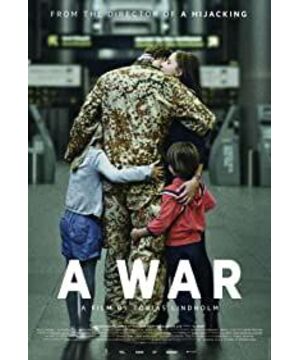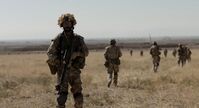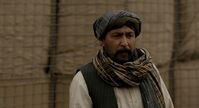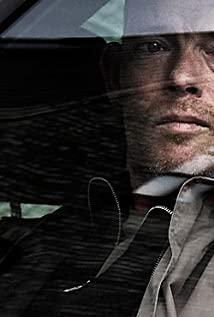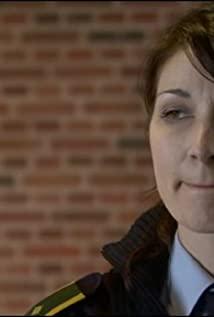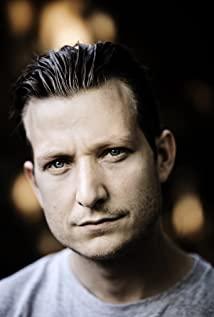Tobias Lindauchem's "War" (2015) represented Denmark in the Oscars for Best Foreign Language Film Awards. The title is indeed a bit big, but it is a real war. Klaus, born in 1980, is not too old and is already a company-level officer in the coalition forces in Afghanistan. He led his soldiers to fight against the Taliban from time to time. The film uses a flat cross narrative technique to reproduce the life changes of Klaus in Afghanistan and his wife Maria in Denmark.
Maria fears for Claus, who is fighting in the distance, and has to work hard to bring three unskilled children. The eldest daughter Fanny is quiet by nature. The second son Julius is very active and often fights with classmates. The third son Elliott has just been toddler and stuffed his mouth when he got something. He had to rush to the hospital for treatment. The children are eagerly looking forward to the return of their father, so their mothers have no way to solve them, and can only encourage each other over the phone.
Maria, who was in chaos, was still in peace. But Klaus had to face the usual bloodshed. Some soldiers can't stand this day-to-day suffering. Their psychological defenses have become extremely fragile. For example, after the 21-year-old soldier Anders was killed in the bombing, Lars fell into deep pain and fear. Lars said I don't understand why we are here. Like the frustrated and desperate American soldiers during the Vietnam War. As their leader, Klaus understood them to comfort them. He said that we are here to protect the people here from being violated, so that they can rebuild their homes with peace of mind. Although it is commonplace, it is not unreasonable.
In the next operation led by Klaus to invade the Taliban, instead of protecting civilians, he lost the initiative and injured Ras. Worse still, soldiers such as Butcher, Stoff and Michel fell into trouble. The encirclement of the Taliban. In the smoke of gunpowder, they had to request air support to break through and escape. However, the air support caused the deaths of 11 civilians. Military prosecutors accused Klaus of violating the engagement manual, blindly requesting support without seeing the enemy clearly, resulting in the death of innocent civilians. The crime was unpardonable. Normally, he would be sentenced to 4 years in prison.
After questioning the soldiers one by one, the military came to a clear conclusion, blaming Klaus for failing to fulfill his due warfare obligations and allowing civilians to die in vain, so he made the decision to retire early and return to the country. To be honest, seeing this, I feel the military's arbitrariness and hypocrisy. As a commander, Klaus did not protect the local Najib and his family effectively. Because they healed Najib's scalded daughter, they were threatened by the Taliban. For fear of retaliation, when the Najib family requested to stay overnight in the camp, Klaus promised to clear the Taliban there tomorrow, but according to military regulations, his family had to leave the camp. As a result, the Taliban killed their entire family.
When they waited for the action the next day, they fell into a trap designed by the Taliban, which eventually resulted in the deaths of 11 civilians. The problem is that under the special circumstances of the fighting at the time, the enemy was attacked and the position of the enemy was unknown. What's more, the Taliban knew that coalition forces did not harm civilians, so they had always gathered among civilians as bait, and Klaus wanted to protect his soldiers from being deceived. Casualties, to be able to return to the camp safely, he must make a hasty decision in the murderous chaos, without time to think about it, not to mention that Russ is injured and needs helicopter rescue.
After returning to China, Klaus felt the joy of being reunited with his family, but he did not enjoy the happiness after the reunion, because he hurriedly went to court and had to accept the prosecution of military prosecutors. Klaus looked at the soldiers who were sitting like brothers, and of course his worrisome wife.
Maria said to him, you can't ignore the children, even if you really go to jail for four years, can those who died come back to life, and what will happen to your three children in four years. The wife's anxiety is real. This is love and pity, but also fear. It is conceivable that she can't afford to bear the burden of Klaus's family alone after being imprisoned.
Honest Klaus had to tell the lawyer that I did not see the Taliban and I could not tell lies. His confession made the lawyer feel very weak, because as long as he said "I saw the enemy", it was enough to be exonerated. In the court, the prosecutor pressed harder, making Klaus hard to breathe. Fortunately, the nickname "The Butcher" who last appeared in court to testify said that he did see the Taliban guns in the No. 6 yard shining, so I told Klaus and he made the decision to request air support. But the prosecutor said that in the past six months, your butcher hadn't said anything like this before. The butcher said that you never asked, I only feel very sorry.
The movie raises a sharp question: Who is responsible for the deaths of so many innocent civilians in the war? Perhaps this will always be an unsolvable “dead knot”. Because there is war, there will inevitably be death. This also includes civilians. This is inevitable. Although there are advanced weapons such as precision guidance, after all, talent is the most important thing. Animals that are difficult to control.
Obviously, it is too far-fetched to let a lower-level officer like Claus bear the deaths of the 11 civilians, and it is indeed "innocent". This has kept Klaus immersed in the low ebb of his emotions for the past six months. When he said to his wife, "I can't bear it anymore, I have to do something", the frightened wife hugged him tightly to comfort him, so that he can feel at ease, and don't bear the burden of burden.
Just before the day when the court finally pronounced the verdict, Klaus, who had almost collapsed, was comforted by his wife, and the family came to the sea to play. His wife and children gave him the strongest confidence. In the evening, my son Julius said, father, can you still cover me with a quilt tomorrow. Klaus choked and nodded, saying "I promise, good night!" Fortunately, in the final consensus, the court found him not guilty. Everything seemed to settle down, but the silent Claus didn't have much excitement. He silently watched his wife who was crying with joy and his comrades who were cheering.
The unalterable fact broke Klaus's psychological defenses, even if he felt that the decision made at the time was blameless for the safety of the soldiers, but after all, 11 civilians died, which made him full of guilt and self-blame. In the end, it comes down to the war itself. The fault lies only in the war, but who created the war is the result of history, reality, and multiple accumulations. To put it simply, who is at fault may be too arbitrary. For example, U.S. drones in Afghanistan, Pakistan, Yemen, and Somalia have eliminated terrorists and inevitably bombed civilians by mistake.
But it is undeniable that the process of human civilization is always moving forward in constant contests with the remnants of ignorance and evil, which of course will also cost an extraordinary price. Only how to keep innocent civilians away from war and death is the fundamental and prerequisite of all "wars", and it is also the most difficult issue.
2016, 4, 13
View more about A War reviews


